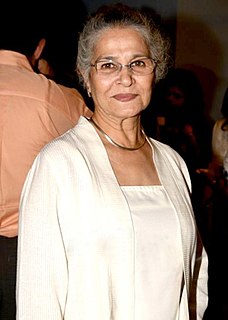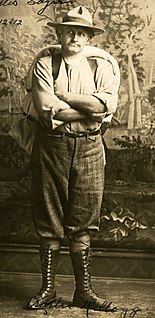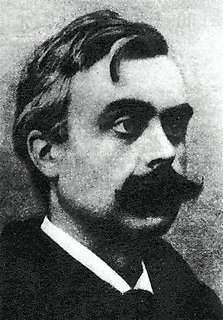A Quote by Ralph Waldo Emerson
Beside all the moral benefit which we may expect from the farmer's profession, when a man enters it considerately, this promised the conquering of the soil, plenty, and beyond this, the adorning of the country with every advantage and ornament which labor, ingenuity, and affection for a man's home, could suggest.
Related Quotes
The Declaration has a moral power which is of enormous weight and influence. The statement of the rights represent a goal, or a standard, to which every man can look and with which he can compare what he in fact enjoys. The fact that no country was prepared to vote against the Declaration indicates its compelling moral force.
The greatest country, the richest country, is not that which has the most capitalists, monopolists, immense grabbings, vast fortunes, with its sad, sad soil of extreme, degrading, damning poverty, but the land in which there are the most homesteads, freeholds - where wealth does not show such contrasts high and low, where all men have enough - a modest living- and no man is made possessor beyond the sane and beautiful necessities.
A few ideas seem to be agreed upon. Help none but those who help themselves. Educate only at schools which provide in some form for industrial education. These two points should be insisted upon. Let the normal instruction be that men must earn their own living, and that by the labor of their hands as far as may be. This is the gospel of salvation for the colored man. Let the labor not be servile, but in manly occupations like that of the carpenter, the farmer, and the blacksmith.
No man should be viewed as having more to offer the world than another. We are all equals and every human being has something of value in their composition which makes them unique, just as every country has their own unique resources to share with the world. Never discount somebody based on material wealth, for true wealth is what cannot be seen. Never discount a country by what they can't provide your country, while their resources may benefit other lands in need.
The bond between a man and his profession is similar to that which ties him to his country; it is just as complex, often ambivalent, and in general it is understood completely only when it is broken: by exile or emigration in the case of one's country, by retirement in the case of a trade or profession.
Since chemical fertilizer burns out the soil organic matter, other farmers struggle with tilth, water retention, and basic soil nutrients. The soil gets harder and harder every year as the chemicals burn out the organic matter, which gives the soil its sponginess. One pound of organic matter holds four pounds of water. The best drought protection any farmer can acquire is more soil organic matter.
The state of society is one in which the members have suffered amputation from the trunk, and strut about so many walking monsters, - a good finger, a neck, a stomach, an elbow, but never a man. Man is thus metamorphosed into a thing, into many things. The planter, who is Man sent out into the field to gather food, is seldom cheered by any idea of the true dignity of his ministry. He sees his bushel and his cart, and nothing beyond, and sinks into the farmer, instead of Man on the farm.
Nature hath made men so equal in the faculties of body and mind, as that though there be found one man sometimes manifestly stronger in body, or of quicker mind than another, yet when all is reckoned together, the difference between man and man is not so considerable as that one man can thereupon claim to himself any benefit to which another may not pretend as well as he.








































